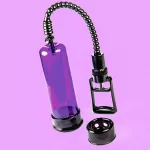Wait…Is Melatonin Really Like Ambien?
You know those nights where you’re staring at the ceiling, doing the mental math—”If I fall asleep now, I’ll get four hours… okay, three hours… two hours…”? Yeah, I’ve been there too. At some point, you start wondering if your options are down to a little white pill (Ambien) or a “natural” supplement that sounds gentle (melatonin). But here’s the kicker: people always ask, “How much melatonin is equal to Ambien?” Like converting teaspoons to tablespoons. Spoiler: it’s not that simple. But let’s break this down together, mess and all.

First, quick gut-check: ever tried to fix a leaky faucet but ended up flooding the kitchen? That’s what sleep problems can feel like if you just patch them without really thinking—sometimes, small issues become very big, very fast. Let’s not let that happen here.
Ambien’s Knockout Power: Explained
If you’ve ever popped an Ambien, you probably remember how fast you felt… fuzzy. Ambien, or zolpidem, is the heavyweight boxer of sleep meds. It gets prescribed for people who seriously can’t sleep. It works by fiddling with the GABA system in your brain, which is like turning down the volume on all those “stay awake” thoughts. Onset? You could be snoozing in just 20 minutes. The usual dose is 5 or 10 mg, and you wake up—hopefully—feeling refreshed. Or maybe like you just time-traveled through the night and landed somewhere strange. Wild, right? research on Ambien vs melatonin
But (and this is a biggie), Ambien isn’t just “sleep in a bottle.” It can give you a hangover—not booze-style, more like a memory-mess and grogginess that’s hard to shake. Some people even sleepwalk or raid the fridge without remembering. (Ask any insomniac group online, and you’ll be amazed at the zombie-like tales…)
Real Talk: Side Effects Table
| Side Effect | Ambien | Melatonin |
|---|---|---|
| Grogginess | Common | Occasional |
| Dependency | Possible | Unlikely |
| Weird Sleep Behaviors | Possible | Rare |
| Dizziness | Common | Mild/Uncommon |
Melatonin: The Gentle Nudge
If Ambien’s a sledgehammer, melatonin is more like a soft tap on the shoulder. Melatonin is literally what your body makes as it gets dark, cueing you for bed. (Think of it as your brain’s “night mode.”) The supplement versions you find at any drugstore are meant to boost that signal, not bulldoze you to dreamland.
Doses range from 1 mg up to 10 mg on shelves, but honestly, piling on more doesn’t usually mean you’ll sleep harder or better. In fact, for most folks, 1-3 mg is enough—any more and you may just feel sluggish the next day without the extra Zzz’s. According to practical melatonin advice, start low and see how your body feels.
But here’s a funny story—my best friend, Sarah, tried melatonin for the first time before a big work trip. She texted me at 3 a.m., “It just made me more aware of how tired I wasn’t.” Sometimes, it works magic. Other times… not so much. Kind of like making coffee with decaf and wondering why you’re not feeling it.
So…Can Melatonin Replace Ambien? (Nope, But Let’s Go Deeper)
If you’re curious about how much melatonin is equal to Ambien, here’s the scoop: there’s no head-to-head conversion. Not even close. Ambien is designed to bulldoze your sleep problems—it practically forces your brain into “off” mode. Melatonin? It just softly suggests bedtime. Trying to match Ambien’s impact with melatonin would be like trying to swap a thunderstorm for a gentle breeze. Both will get your lawn wet, but the experience is wildly different.
All the research and in-depth articles agree: Ambien is way stronger. So if you’re dealing with nightmares-level insomnia, melatonin probably won’t hack it. But for mild restlessness, jet lag, or resetting your clock after a wild weekend, melatonin can be just right.

Dosage Face-Off: Just Tell Me the Numbers
I get it: you want numbers. Okay, here’s how most experts break it down—
- Ambien: 5 mg or 10 mg is standard (prescription-only, please don’t DIY).
- Melatonin: 1 mg to start, rarely above 5 mg for adults.
People often think if 1 mg didn’t work, 10 mg has to. Nope. It’s like adding buckets of water to a damp sponge. More isn’t always more. The key with melatonin is timing—take it 30-60 minutes before you want to sleep, preferably when lights are low and screens are off. (In case you need to double-check: don’t mix Ambien and melatonin unless your doctor says so—risks = drowsiness overload…)
If you’re stuck in the middle—maybe you’re looking for the Closest thing to Ambien over the counter—melatonin is honestly your most popular option. Not as mighty as Ambien, but it skips the controlled substance status, which means less baggage (and paperwork at the pharmacy checkout).
Personal Notes: Whoa…Ambien Stories
Oh, and I’d be remiss not to mention: people share the wildest stories about Ambien. If you dig through Reddit or even ask around, you’ll find all sorts. Like the time my cousin, after just 10 mg, woke up to find she’d ordered rollerblades online—she doesn’t skate. No memory of it. Melatonin? The weirdest I’ve heard was someone dreaming they ate glow-in-the-dark pickles. Make of that what you will.
Effectiveness: Who Wins?
Let’s get brutally honest. For full-on, can’t-sleep-without-it insomnia, Ambien almost always works faster and deeper. That’s why docs prescribe it. One study actually compared Ambien (zolpidem) and melatonin in people with severe sleep problems, and both improved sleep about the same after four weeks—but here’s the catch: as soon as people stopped, both groups’ sleep quality faded. So addressing sleep routines and stress? Still important! More on this research
Melatonin is clutch for:
- Jet lag (trust me, it’s like a gentle reset button)
- Working night shifts
- Mild to moderate sleep troubles from stress or travel
Ambien is more for:
- Short-term, emergency-style insomnia
- When you need real sleep now
- If other approaches (like melatonin, herbal teas, sleep hygiene tweaks) haven’t worked
Can You Use Both—Or Switch Between?
Here’s another thing people ask all the time—can I take both? Should I wean off one with the other? The answer lives in the “maybe” zone. Yes, some docs use melatonin to help people gradually come off Ambien, but you absolutely want to check out How to take Ambien and melatonin together before you try both. Side effects stack up fast, and not always the way you’d hope.
One person on a Mayo Clinic forum said that after two decades on Ambien, melatonin just didn’t cut it for them… but another found that a low dose, along with sleep rituals (think… chamomile tea and strict phone curfews), worked wonders after a slow Ambien taper.
Risk Check: What Could Go Wrong?
I mean, everything comes with a warning label these days. But if you want my honest take—Ambien wins the risk lottery (not a prize, by the way). It’s got a higher chance of dependency, scary sleep behaviors, and next-morning confusion. FDA has even flagged this for real. Melatonin, on the other hand? You might get a headache, a weird taste in your mouth, or feel groggy if you overdo it, but genuine side effects are rare.
But—soapbox moment—you wanna know the #1 risk with melatonin? Buying cheap stuff from the wrong place. Studies have shown that some supermarket brands wildly mislabel the dose (sometimes by a factor of 10!), so be choosy about brands with solid reputations. Industry warning on supplement quality

Which Path Should You Try?
Here’s my nugget of wisdom: if you need the Closest thing to Ambien over the counter, just know nothing sold at your local pharmacy is truly Ambien-level. Melatonin is your gentlest bet. For lasting change, try a combo of good sleep hygiene (dark room, cool temp, consistent bedtime), maybe a sprinkle of melatonin, and lots of patience. Only bring out Ambien if your doc insists—it’s a serious med, not a routine fix.
Feel like you’re in the bumpy middle? Keep an open conversation with your provider. And ask about guides like How to take Ambien and melatonin together so you can explore safe combinations if absolutely needed.
Wrapping It Up (Yes, With Hope!)
If you’ve read this far (or let’s face it… if you’ve just scrolled straight to the end!)—here’s the bottom line: there’s no direct converter for how much melatonin is equal to Ambien. You can’t swap them milligram for milligram. Ambien’s the sledgehammer; melatonin’s the bedtime whisper. For mild sleep troubles or circadian resets, melatonin—1-3 mg, taken 30-60 minutes before bed—often works, without the drama or risk. Ambien? Save it for those true “can’t function without sleep” stretches, with a doctor’s eye on the process.
Your sleep story is yours. Be gentle (on yourself and your brain!). Try melatonin for mild sleep weirdness, layer in lifestyle tweaks, and call in the big guns only if truly needed—after all, restful sleep is about finding what fits your life, not just what fits in a pill bottle. And remember: insomnia doesn’t have to be a solo journey—there are pros, support forums, and lots of trustworthy advice out there. (Just maybe lock the fridge if you’re on Ambien… just in case.)
And hey—if you’ve got stories or tips, share them. Let’s help each other out. May your dreams tonight be the good kind, and your pillow feel like clouds. Here’s to taking the next small step towards better sleep—you’ve got this.

























Leave a Reply
You must be logged in to post a comment.